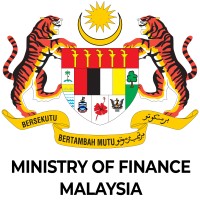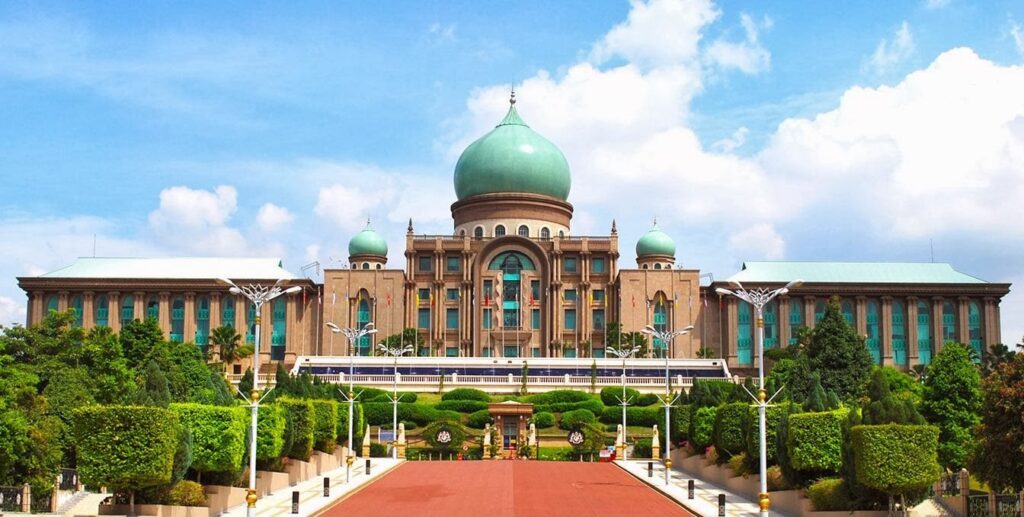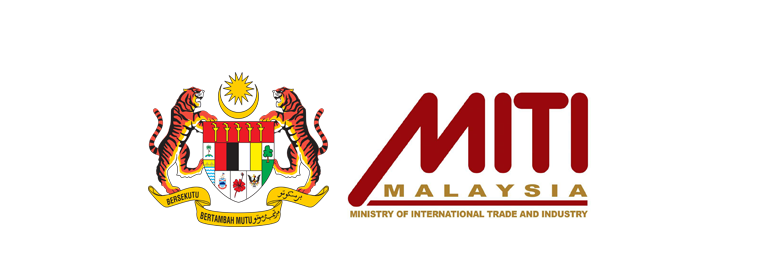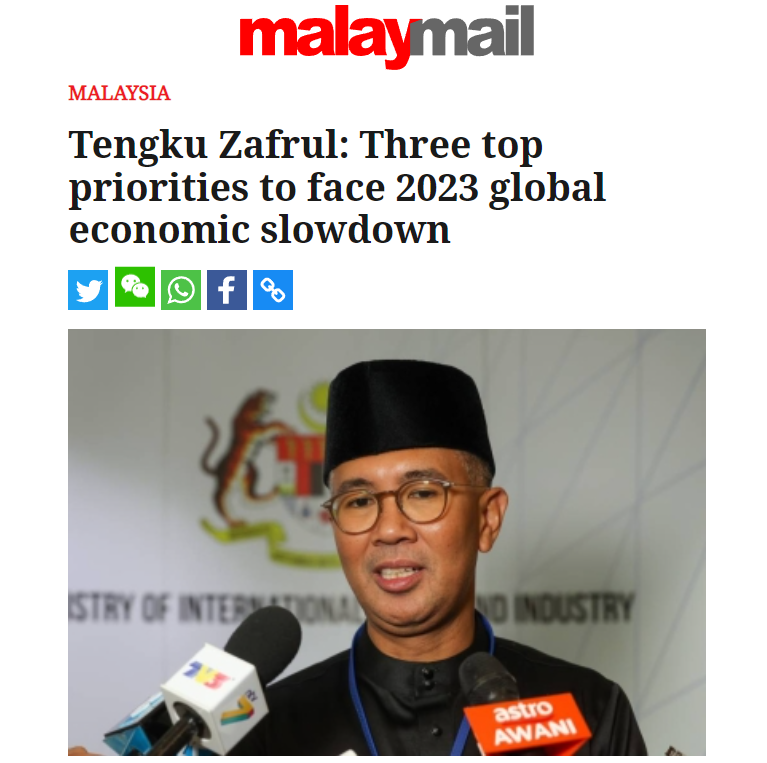What to Expect From Malaysia’s New Cabinet?
Three ministries will shape how Malaysia revolves around the market.

Last Friday, Malaysia’s Prime Minister, Anwar Ibrahim, announced his list of cabinet members. Remarkably, a lot of new faces were introduced into the line-ups, along with some familiar faces.
The market is currently eyeing on three ministers (and their ministries — of course) that will shape how Malaysia will wade through these tremulous times.
Ministry of Finance (MoF)

The MoF is led by none other than Anwar Ibrahim himself, who is known for his westward inclination in his economic philosophy. Throughout his career, Anwar is known to be closely acquainted with some of the most prominent figures in the western world.
Moving on to how Anwar Ibrahim may affect the market, he is expected to put strong support on initiatives to mitigate climate change. This concern has been raised by him even before the light of the premiership was even apparent to him, as highlighted in one of his tweets.
Health. Jobs. Education. Climate change.
— Anwar Ibrahim (@anwaribrahim) June 13, 2021
Prepping for a busy week ahead. pic.twitter.com/qaz6z7CDe6
This would mean good news for ESG markets, where initiatives to expand investments in ESG companies may be catalyzed, with prospects of improved support from financial institutions — including the Islamic banking sector.
Securities Commission Malaysia (SC), in 2017, launched a product known as Green Sukuk — or simply put, it is an Islamic version of green bond. A year after its launch, Refinitiv reported that the issuance of Green Sukuk has almost tripled from USD 461 million to USD 1.36 billion in 2018.
The numbers peaked at USD3.65 billion in 2019 before dipping to USD1.58 billion in 2021 (most likely due to the uncertainty that COVID has caused) but currently is showing promising growth at USD2.4 trillion — and the data was only on up until the first half of 2022!
Such initiatives might bloom and expand in the coming years, with the world being more concerned than ever about the issues of climate change. It is not a bad idea to monitor the ESG market — along with the economic and geopolitical turmoil the world is in.
“We believe that there is a significant opportunity arising from strong global interest in green financing where innovative fundraising instruments like green and SRI Sukuk is a viable solution to address global needs for green and other forms of sustainable and responsible financing,”
Apart from the merry news to the ESG market, a rather more general insight into what would probably happen would be on the reform that Anwar so consistently reverberates throughout his 24 years of journey to power.
One of the possible ways this reform is to be materialized (in a picture-perfect scenario) that is of concern to the market would be a more transparent way of governance (yes, somewhat we are still within ESG). This would finally mean that the ‘invisible hands’ moving the Malaysian market would most likely be those of Adam Smith’s envisions.
Interestingly, 5 days after having assumed his position, Anwar Ibrahim already made clear to the officials that the government must work to cease any prejudicial conduct such as approving projects without tender, as well as fight corruption to its core.
Saya turut menegaskan bahawa budaya lama pemerintah yang meluluskan projek tanpa tender serta kebocoran dan ketirisan yang berleluasa mesti dihentikan.
— Anwar Ibrahim (@anwaribrahim) November 29, 2022
Of course, it is very early to see if these promises are to be abided by, and talks are only talks until limbs are moved. Until then, these are the insights into what may happen as the new Malaysian Unity Government navigates its way against the backdrop of a recovering economy.
Economic Division of The Prime Minister’s Office

Rafizi Ramli, an old running-mate alongside Anwar Ibrahim in People’s Justice Party (PKR) was appointed as the Minister of Economy, a division under the Prime Minister’s Office (PMO).
Among the most notable portfolio that will be held by Rafizi is the Economic Planning Unit (EPU), a key branch of the PMO which is responsible for determining Malaysian economic trajectory, be it in terms of planning for socioeconomic development, the allocations of funds for government branches, as well as facilitating the execution of government projects.
Rafizi’s policy-making processes are expected to be influenced by the Economic Action Council (EAC) secretariat, but on his own, Rafizi’s background may shed some light on what his personal aspirations can be.
First, venture capitals in startups and small-medium enterprises (SMEs) may look forward to policies that are more accepting of their business nature, especially those that are in the tech startup diaspora.
This is due to the fact that Rafizi himself is an owner of a tech startup, INVOKE, and he is aware of how gruesomely challenging startup hurdles can be.
This is what I do for a living - running a tech startup.
— Rafizi Ramli (@rafiziramli) July 22, 2021
Raising capital in Malaysia is hell - since 2019 when we turned commercial, not a single Malaysian-based VC or institution had shown interest.
The ones who kept knocking our doors are international VCs.#startup pic.twitter.com/yFQegYKLYX
For startups, we are most likely to expect government funds channeled to assist local startups. Apart from that, government initiatives in attracting more foreign investments into local startups is also something that can be expected from Rafizi and his team.
Given his past interactions, Rafizi tends to be more inclined toward the deregulation of the market. For example, somewhere in 2013, he tweeted an idea to reduce excise duties on motor vehicles annually, and eliminate them wholly.
Despite that, a man and a ministry are two separate things, and whether the EPU will be more inclined with a market-inclined approach is still something that time can tell.
Of course, these are merely takes and guesses, there are many other factors that can affect the up-and-coming policies, such as national political events, geopolitical landscapes, and economic outlooks.
Ministry of International Trade and Industry (MITI)

MITI currently holds one of the most important portfolios affecting the market and Malaysia’s placement in the global market landscape. The ministerial post is currently held by Tengku Zafrul, then Malaysia’s Minister of Finance with a corporate background in the banking sector.
Looking at his previous tenure, Tengku Zafrul was a bit hands-off in terms of policy trajectory, and so is MITI. MITI is heavily influenced by its own staff and internal policymakers.
Thus, a general expectation of MITI is that they will move forward with whatever was on the to-do list with certain updates on a certain matter.
Upon his appointment, MalayMail reported that Tengku Zafrul made a statement on three key trajectories that he will focus on during his tenure:
1) To ensure trade remains a key growth driver to the economy.
2) To restore investors’ confidence.
3) To look into bilateral and multilateral agreements and their advantages to the participants of the Malaysian supply chain (with a strong focus on micro and small SMEs).
What can be expected of him and the ministry is a structuring of the Malaysian Industrial Master Plan, which some expect (speculatively) to be more focused on complexifying the local market by increasing participation in manufacturing-related services.
“Through the 2023 Budget that will be presented again to Parliament, MITI will propose the creation of a special investment fund to attract more high-value-added investments to generate higher-paid professional employment opportunities,”
This would be vital for the manufacturing industries in Malaysia, whose sales value is dominated by the petroleum, chemical, rubber & plastics subsector (27.2%), followed by electrical & electronics (24.7%), and transport equipment & other manufacturers (21.6%) as of September 2022.
Another thing that may come to light is the Malaysian-European Union (EU) Free Trade Agreement (FTA), which saw a painstaking series of negotiations falling apart ever since it was initiated in 2010 — nonetheless, it is still on the table upon being put under the ‘pending’ files on September 2012.
This new government may have the chance to revisit its long-pending negotiation which, if they do, will bring a new perspective into the Malaysian-EU partnership. Various scopes under the agreement will affect the market, such as market access for goods, customs, and trade facilitation (CTF), technical barriers to trade (TBT), intellectual property rights (IPR), and many more.
The fate of this agreement, however, is still hanging in the balance, with issues such as competition concerns on ‘Bumiputera’ policies in Malaysia and the recent EU ban on palm oil putting a strain on the balance.
Nonetheless, on the issue of palm oil ban, the government of Malaysia has come up with the initiative to introduce the Malaysian Sustainable Palm Oil (MSPO) Certification Scheme which hopes to return confidence in Malaysian palm oil, as well as grease some rough edges between the Malaysia-EU relationship.
The key takeaways/market update is a series by AxeHedge, which serves as an initiative to bring compact and informative In/Visible Talks recaps/takeaways on leading brands and investment events happening around the globe.
Do keep an eye out for our posts by subscribing to our channel and social media.
None of the material above or on our website is to be construed as a solicitation, recommendation, or offer to buy or sell any security, financial product, or instrument. Investors should carefully consider if the security and/or product is suitable for them in view of their entire investment portfolio. All investing involves risks, including the possible loss of money invested, and past performance does not guarantee future performance.

Written By
AxeHedge







